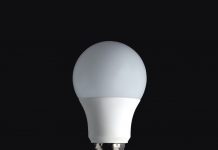Just like with eggs (popular one day with health-proven benefits and then shunned the next), zinc shares an on-again/off-again reputation for whether or not it truly improves immunity or shortens colds. The latest research from the University of Helsinki finds that zinc lozenges are once again on the “off” list.
Zinc’s immune boosting properties have been hailed as a way to shorten a cold in many previous studies, but the studies haven’t been consistent. Some theories for why it’s so difficult to obtain consistent findings from zinc studies is due the format of the zinc lozenge. Some of the zinc lozenges do not contain as much zinc as the label reports, and some contain inactive ingredients that actually bind to the zinc and make it unable to be absorbed by the body. Citric acid is one of those ingredients that binds to the zinc and prohibits the release of the zinc ions within the mouth and throat. Citric acid is often used as either flavoring, an inactive ingredient, or a preservative.
In the most recent study, researchers conducted a double-blind and placebo-controlled trial with 88 participants. The participants were given zinc lozenges and asked to hold onto them until they encountered cold symptoms, and then they were asked to let 6 zinc lozenges dissolve in their mouths each day for 5 days. The zinc in the lozenges was equivalent to 78 mg of zinc per day.
The results weren’t favorable regarding zinc’s purported cold-shortening abilities. The researchers found that there was no difference between those people who had used zinc lozenges over people who did not use the zinc lozenges—and the people in the control group who did not take zinc actually recovered more rapidly.
The research team believes that there are many areas of the study which can be investigated further. In order for maximal release of the zinc from the lozenge, it should be dissolved very slowly within the mouth. Zinc lozenges can cause a bad taste in the mouth for some participants, but it’s not a side effect that is reported in all people. Further research should study a longer duration of zinc lozenge therapy for more than 5 days, the team says.
While the research is conflicted about zinc, zinc has appeared to have some benefit for shortening the symptoms of the common cold (eight controlled trials have come to this conclusion). It’s too early to say that it’s a sure-fire remedy or something that everyone should be trying.
Zinc is, indeed, vital to our immune system, but it’s a mineral that it’s easy to get too much of once you start supplementing if you just use zinc on its own. Multi-vitamin/multi-mineral products generally keep the dosage low to account for the dietary sources of zinc which most people ingest daily. The important thing to remember about zinc is that it stays in a delicate balance with copper inside your body. Both zinc and copper are essential minerals our bodies need to function; but if you take too much zinc, it lowers the copper levels in the body. This can lead to something called “zinc-induced copper deficiency.”
A zinc deficiency is rare in first-world countries. It can, however, be poorly absorbed because there are compounds in grains and beans which interfere with its absorption. Some people need more zinc, such as vegetarians who cannot get zinc through meat, people who drink more than recommended amounts of alcohol, and certain digestive disorders.
Always discuss the vitamins and supplements you choose to take with your doctor. Natural sources of zinc include dark chocolate, shellfish, red meat, seeds, legumes, nuts, eggs, dairy products, whole grains, and a variety of vegetables.
References
Harri Hemilä, Jari Haukka, Marianne Alho, Jussi Vahtera, Mika Kivimäki. Zinc acetate lozenges for the treatment of the common cold: a randomised controlled trial. BMJ Open, 2020; 10 (1): e031662 DOI: 10.1136/bmjopen-2019-031662



































